|
 Secure Site
Secure Site
|
 |
Archive for the 'Cherry Blossoms' Category
 Snow print by Suzuki Harunobu - Life Your Mood to Change Your Life Research in cognitive psychology shows that our thoughts determine the quality of our emotions, moods, actions, and life experiences. “So nothing is more urgent or more important than learning how to take charge of our thinking,” says Selby. He created a technique to break “thought addiction,” or an inability to let go of past regrets and future worries in order to enjoy the present moment.
The approach uses “cognitive shifting,” which helps you move between states of mind and optimize your mental performance. In pairing that mental shift with specific phrases you say to yourself, you build a powerful habit that can overcome the tendency to “read” events in a negative way. In short: You stop letting little things upend entire days.
Wake up with gradual, beautiful acoustic chimes. The Zen Alarm Clock transforms your mornings and gets you started right, with a progressive awakening.
 Waking up in the morning should be as pleasant as falling asleep at night. The Zen Alarm Clock's gradual, gentle awakening is transformative.
Boulder, Colorado—an innovative company has taken one of life’s most unpleasant experiences (being startled awake by your alarm clock early Monday morning), and transformed it into something to actually look forward to. “The Zen Alarm Clock,” uses soothing acoustic chimes that awaken users gently and gradually, making waking up a real pleasure.
Rather than an artificial recorded sound played through a speaker, the Zen Clock features an alloy chime bar similar to a wind chime. When the clock’s alarm is triggered, its chime produces a long-resonating, beautiful acoustic tone reminiscent of a temple gong. Then, as the ring tone gradually fades away, the clock remains silent until it automatically strikes again three minutes later. The frequency of the chime strikes gradually increase over ten-minutes, eventually striking every five seconds, so they are guaranteed to wake up even the heaviest sleeper. This gentle, ten-minute “progressive awakening” leaves users feeling less groggy, and even helps with dream recall.
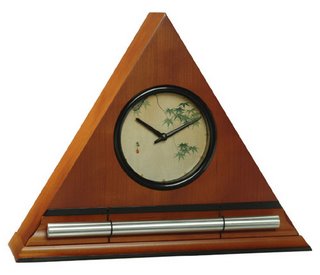 Calming Chime Alarm Clocks with Gentle Chimes Now & Zen’s Calming Chime Alarm Clock Store
1638 Pearl Street
Boulder, CO 80302
(800) 779-6383
Posted in Cherry Blossoms, Meditation Timers, Meditation Tools, mindfulness practice
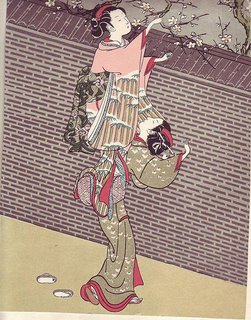 Utamaro Ukiyo-e, Two Ladies With Flowers The “Floating World” described the urban lifestyle, especially the pleasure-seeking aspects, of the Edo-period Japan (1600 –1867).
The term is also an ironic allusion to the homophone (the same as another word but differs in meaning) “Sorrowful World”, the earthly plane of death and rebirth from which Buddhists sought release.
The contemporary novelist Asai Ryoi, in his Ukiyo monogatari (“Tales of the Floating World”, c. 1661), provides some insight into the concept of the floating world:
… Living only for the moment, turning our full attention to the pleasures of the moon, the snow, the cherry blossoms and the maple leaves; singing songs, drinking wine, diverting ourselves in just floating, floating; … refusing to be disheartened, like a gourd floating along with the river current: this is what we call the floating world…
Ukiyo floating world adapted from wikipedia.org
One of the ultimate Zen like experiences is waking-up from a great slumber refreshed and energized. Your mind and body are harmoniously one, both alert and focused. Having a refreshed mind and body are two keys to a natural and Zen lifestyle. Waking up in the morning should not be a loud and abrupt awakening, but rather it should be a peaceful positive experience. The right natural alarm clock can transition your deep and tranquil sleep into a serene start to consciousness. Imagine a long-resonating Tibetan bell-like chime waking you up to a beautiful morning experience.
The right alarm clock can be the most beneficial investment for you. With our Now & Zen natural alarm clock you are awakened more gradually and thus more naturally. Now & Zen is focused on creating a naturalistic lifestyle, and our clocks are an example of our philosophy.
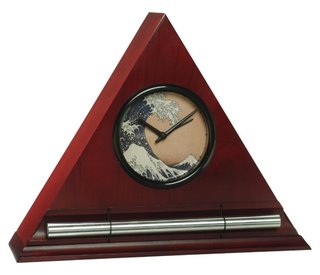 Meditation Clock Timer- Zen Alarm Clock, Ukiyo-e Hokusai Wave Dial Face Now & Zen – The Zen Alarm Clock Store
1638 Pearl St.
Boulder, CO 80302
(800) 779-6383
Posted in Beauty, Cherry Blossoms, Chime Alarm Clocks, Hokusai Wave, Japanese Inspired Zen Clocks, Meditation Timers, Meditation Tools, Now & Zen Alarm Clocks, Progressive Awakening, Zen Timers
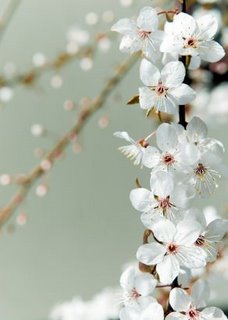 cherry blossoms, Now & Zen Inc. makers of Zen Timers Meditation has been defined as:
“self regulation of attention, in the service of self-inquiry, in the here and now.”
-Maison, Werheimer, & Kabat-Zinn (1999)
The various techniques of meditation can be classified according to their focus. Some focus on the field or background perception and experience, often referred to as “mindfulness”; others focus on a preselected specific object, and are called “concentrative” meditation.
In mindfulness meditation, the meditator sits comfortably and silently, centering attention by focusing awareness on an object or process (such as the breath; a sound, such as a mantra, koan or riddle-like question; a visualization; or an exercise).
wikipedia.org
 maple zen timer for meditation and yoga Now & Zen’s Meditation Timer Shop
1638 Pearl Street
Boulder, CO 80302
(800) 779-6383
Posted in Cherry Blossoms, Japanese Inspired Zen Clocks, Meditation Timers, Meditation Tools, Natural Awakening, Now & Zen Alarm Clocks, Progressive Awakening, Well-being, Yoga Timer, Yoga Timers by Now & Zen, Zen Timers
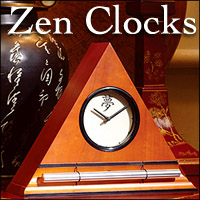 Soothing Chime Alarm Clocks Fear is an Alarm Clock
Paul Williams’ little book, Das Energi, is a classic of progressive spirituality, first published in 1973.
Here is a juicy excerpt that we thought would be appropriate for our “alarm clock blog“:
“It’s hard to stop the reasoning mind, which of course is the breeder of fear. Here is an argument your mind is sure to come up with; you may as well be familiar with it.
The argument is that fear is needed, fear is a warning, fear protects us from danger, if a baby didn’t learn to fear the hot stove he would be burned again and again. Not to think about fear, not to let it live, so the argument goes, is to blind oneself to danger.
Your mind will phrase the argument; your mind must answer it. Must answer it in advance; these arguments are deadly if they wait till fear is present, raging. Fear is born of reason, and it destroys reason. One must not use reason to combat fear.
So think about this argument now. Do we need fear? Is it our protection? This is what I think. I think fear is an alarm clock. The first thing you do when the alarm sounds is shut it off! Then respond to the alarm, collect yourself, take action.”
 There Is No Need to Fear Your Zen Chime Alarm Clock Now & Zen Headquarter Store
1638 Pearl Street
Boulder, CO 80302
(800) 779-6383
Posted in Cherry Blossoms, Natural Awakening, wake up alarm clock
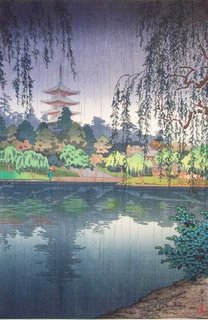 Kofukuji Temple, Nara Yokoi Outdoor rooms, porches, and pavilions let you come home again to the natural world. Let nature’s elements be your palette and sensory delight your touchstone.
Imagine waking up on a summer morning to a gentle breeze on your face, the chattering of birds, and the scent of flowers opening their petals to the dawn. You lie there, warm under your wool comforter, recalling the bliss of falling asleep with frogs croaking in the nearby pond as you gazed at the stars before closing your eyes. All this, yet indoor plumbing is only a few yards away. This is the joy of outdoor living spaces.
Outdoor rooms, porches, and pavilions are back in style. Tired of being cooped up, people are moving their dining, socializing, sleeping, and sometimes even work spaces outdoors. The success of these spaces depends a lot on understanding some basics about climate and design. If you want your investment in outdoor living to pay off, you’ll want a place that’s comfortable in a range of weather conditions.
Our ancestors, who lived without central heating and cooling, knew a lot about building sleeping porches, gazebos, and summer kitchens. These structures allowed them to escape their hot, stuffy houses in summer. After decades of burning fossil fuels with wild abandon to keep us warm in winter and cool in summer, we’re beginning to realize that these people were on to something. Well-designed outdoor rooms are the epitome of ecological design; they get their heat and light from the sun and their cooling from shade and breezes.
In fact, creating an outdoor space for your home is a great way to increase your grasp of climate-responsive design. It’s an exercise in paying attention to the ecosystems you participate in. By noticing where the prevailing winds come from, and by being aware of the sun’s path across the sky, you can create a garden room that keeps you dry in the rain, unruffled by the wind, cool in summer, and warm in all but the worst of winter without burning a drop of fuel.
Outdoor structures can also expand your home’s living space for much less expense than adding a normal room. And an attached outdoor room can increase your home’s energy efficiency by protecting it from heat, cold, and wind, or even—in the case of a sunspace—by collecting solar heat to be used indoors.
But that’s only the beginning. Outdoor living is also good for your health and well-being. Sunlight, fresh air, and greenery nourish body and soul. The sounds of birds by day and crickets by night, the scent of flowers, the feeling of warm sun and cool breezes on our skin, and the sight of birds, butterflies, and bees nourish our senses and restore our participation in the web of life.
 mother nature's living spaces Try this at home
If you have even a little bit of outdoor space around your home, you can enjoy these delights, too. Start by sitting in different parts of your yard. Notice which areas are sunny, shady, calm, windy, private, exposed, moist, or dry. Notice which spots have nice views, near or far. Think about access: Do you want to walk easily from your indoor kitchen to an outdoor dining room? From a sleeping porch to the bathroom?
When you select a place for an outdoor room, pay attention to how the natural elements interact with this spot, how they vary with the time of day and season, and which elements you’d like to temper for your comfort. Let’s say you want to build a pavilion in a corner of your backyard, but the prevailing wind comes from the northwest—which is exactly the direction of your favorite view. A glass wall on the northwest side will meet both your needs. Or maybe you want to create a warm spot for chilly evenings. You can build a curved stone wall that defines the space, blocks the breeze, and faces south to soak up the sun; build a stone bench against the wall, and you’ll have a toasty spot for relaxing at the day’s end. Overhead shade will make the same spot comfortably cool in summer.
Finally, consider having flexible elements that extend the usefulness of your outdoor space. Add removable glass to a screened porch to turn it into a sunroom in winter. Use heavy curtains in your pavilion to block breezes, rain, or prying eyes. Hang a seasonal cloth roof over a patio, or grow a deciduous vine on a trellis or arbor.
adapted from Natural Home Magazine, July/August 2004
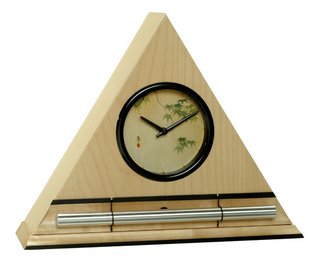 Japanese Maple Leaves Dial Face, Zen Wake-up Alarm Clock Now & Zen
1638 Pearl Street
Boulder, CO 80302
(800) 779-6383
Posted in Cherry Blossoms, Chime Alarm Clocks, Japanese Inspired Zen Clocks, Natural Awakening, Now & Zen Alarm Clocks, sleep, Sleep Habits, Ukiyo-e, wake up alarm clock
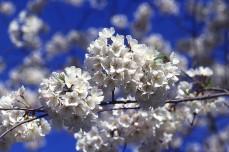 Cherry blossoms (sakura), often simply called blossoms (hana) are a common spring kigo. Kigo is a word or phrase associated with a particular season, used in Japanese poetry.
The association of kigo with a particular season may be obvious, though sometimes it is more subtle. Pumkins (kabocha), for example, are a winter squash that is associated with the autumn harvest.
It may be less obvious why the moon (tsuki) is an autumn kigo, since it is visible year round. In autumn the days become shorter and the nights longer, yet they are still warm enough to stay outside, so one is more likely to notice the moon. Often the night sky will be free of clouds so that also helps with noticing the moon. Autumn is also the time when the full moon can help farmers work under the moonlight to harvest their crops.
adapted from wikipedia.org
 Digital Zen Alarm Clock, a meditation timer and progressive alarm clock
Now & Zen
1638 Pearl Street
Boulder, CO 80302
Posted in Cherry Blossoms, mindfulness practice, Natural Awakening, Now & Zen Alarm Clocks, Zen Timers
a haiku master, Matsuo Basho from Japan
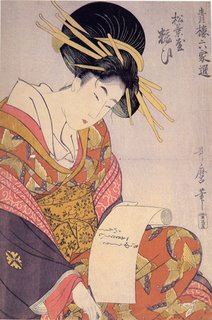 Haiku Ukiyo-e by Kitagawa Utamaro, woodblock print Matsuo Bashō (1644 – 1694) was the most famous poet of the Edo period in Japan. During his lifetime, Bashō was recognized for his works in the collaborative haiku no regata form; today, after centuries of commentary, he is recognized as a master of brief and clear haiku.
Despite his success, Bashō grew dissatisfied and lonely. He began to practice Zen meditation.
“Spring morning marvel
lovely nameless little hill
on a sea of mist”
–haiku by Basho translated by Peter Beilenson
 - Zen Alarm Clock in Maple Finish, Japanese Leaves Dial Face
wikipedia.org
Now & Zen
1638 Pearl St.
Boulder, CO 80302
Posted in Cherry Blossoms, Chime Alarm Clocks, Japanese Inspired Zen Clocks, Japanese Poetry, Meditation Tools, Natural Awakening, Now & Zen Alarm Clocks, Progressive Awakening, Zen Timers
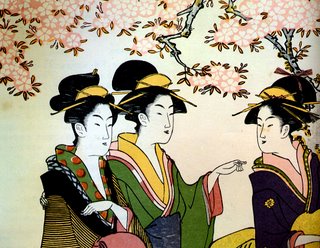 Courtesan Hanaogi of Ogi-ya by Chokosai Eisho, Now & Zen ukiyo-e detail Japanese poets first encountered Chinese Poetry when it was at its peak in the Tang Dynasty. It took them several hundred years to digest the foreign impact, make it a part of their culture and merge it with their literary tradition in their mother tongue, and begin to develop the diversity of their native poetry. For example, in the Tale of Genji both kinds of poetry are frequently mentioned.
A new trend came in the middle of the 19th century. Since then the major forms of Japanese poetry have been tanka (new name for waka), haiku and shi.
In Japan during the ancient times, it was a custom between two writers to exchange waka instead of letters in prose. In particular, it was common between lovers. Soon after in Japan, making and reciting waka became a part of aristocratic culture.
wikipedia.org
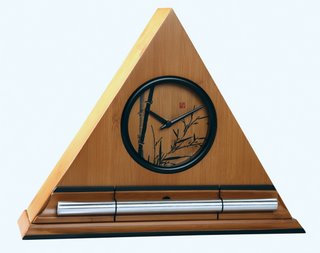 Bamboo Zen Clocks, progressive chime clock and timer Now & Zen Headquarters
1638 Pearl Street
Boulder, CO 80302
(800) 779-6383
Posted in Cherry Blossoms, Japanese Inspired Zen Clocks, Japanese Poetry, Meditation Timers, Meditation Tools, Natural Awakening, Now & Zen Alarm Clocks, Progressive Awakening, Zen Timers
|
|
|
|